Given that constitutional proceses are often implemented in high stress environments, with short timelines and political pressure for finalization, planning at the outset can be very helpful in enabling Constitution-Making Bodies (CMB) and other stakeholders to implement their mandates. This page helps the reader understand the why, how, what, and when of constitutional process planning. Strategic plans help to frame the broader mandate and goals of the constitution-making process, while work plans provide the operational detail necessary to direct the work teams to implement the strategy.
Primer
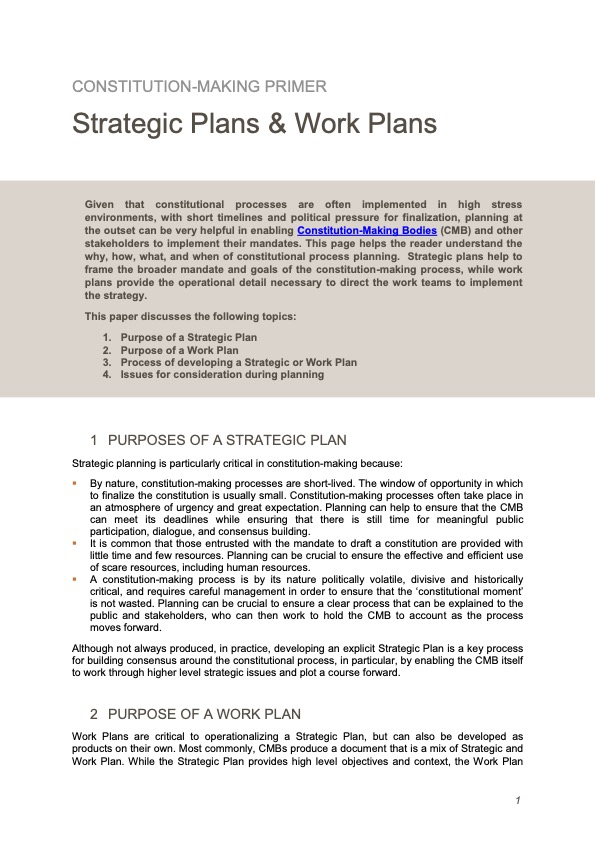
Strategic Plans
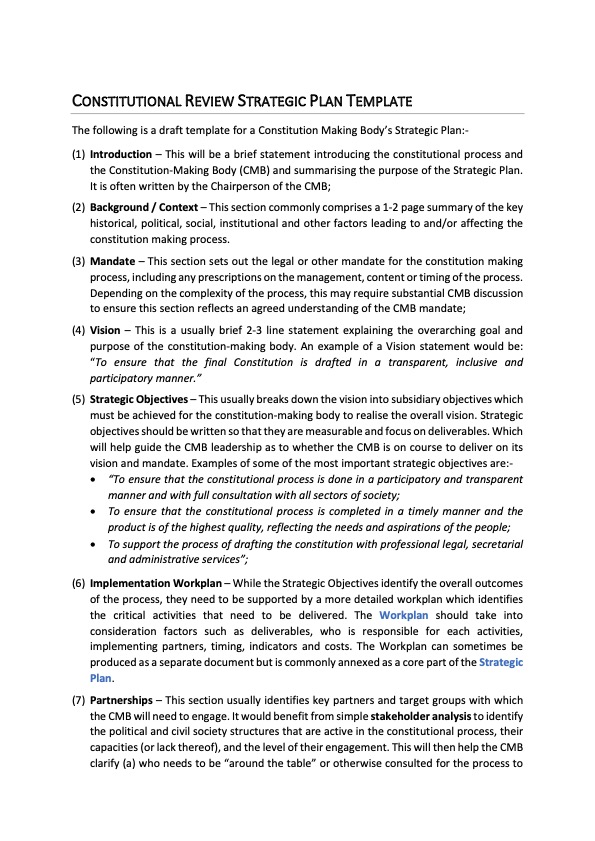
This document is a template for a Constitution Making Body's Strategic Plan.
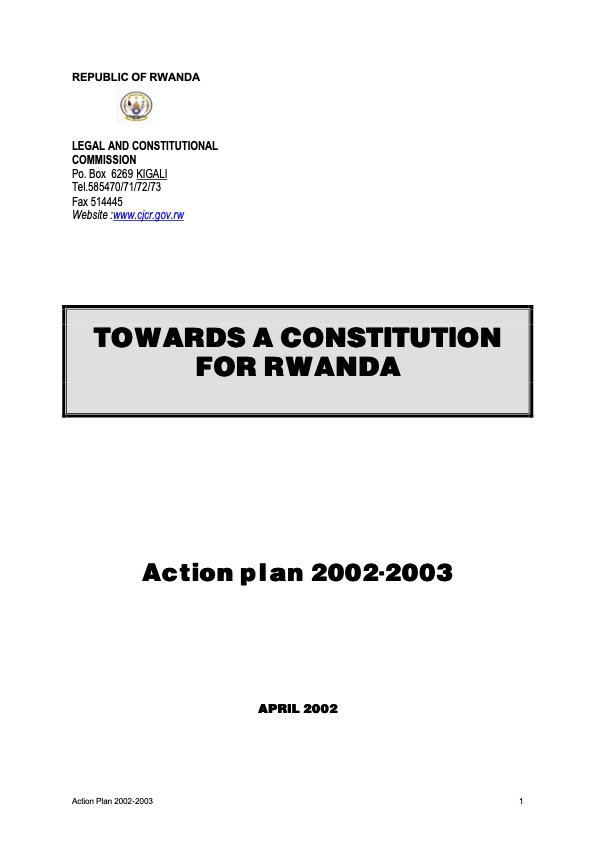
This document is the official strategic and action plan (with budget) for civic education and public consultation for the 2002-2003 Rwandan constitution making process.
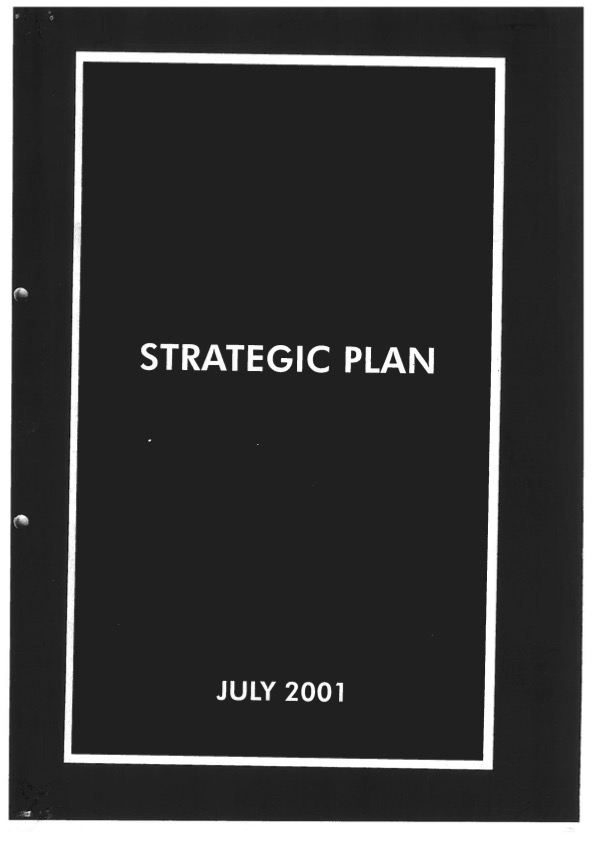
This is the Strategic Plan of the Constitution of Kenya Review Commission (CKRC) as of July 2001 during the post-2000 constitutional review. The plan is intended to provide a comprehensive overview of the CKRC''s work and operations and is presented at a level of generality which would require the concretization and adoption of detailed and more specific targets and tasks. This also includes a timeline of proposed activities and objectives and an eighteen-month budget.
Workplans
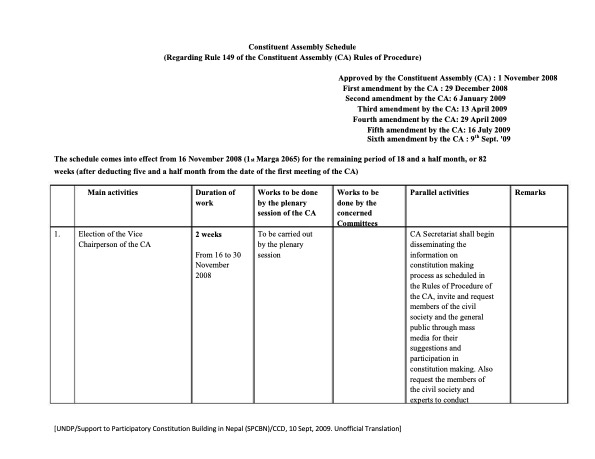
This planned schedule for the Nepal Constituent Assembly contains six amendments to the schedule initially approved on 1 November 2008. It covers November 2008 - May 2010. Activities on the timeline include election of a Vice Chairperson, formation of committees, preliminary committee activities, civic education, drafting, plenary Assembly discussion, publication, report preparation, amendment and distribution of subsequent constitutional drafts, and submission for approval.
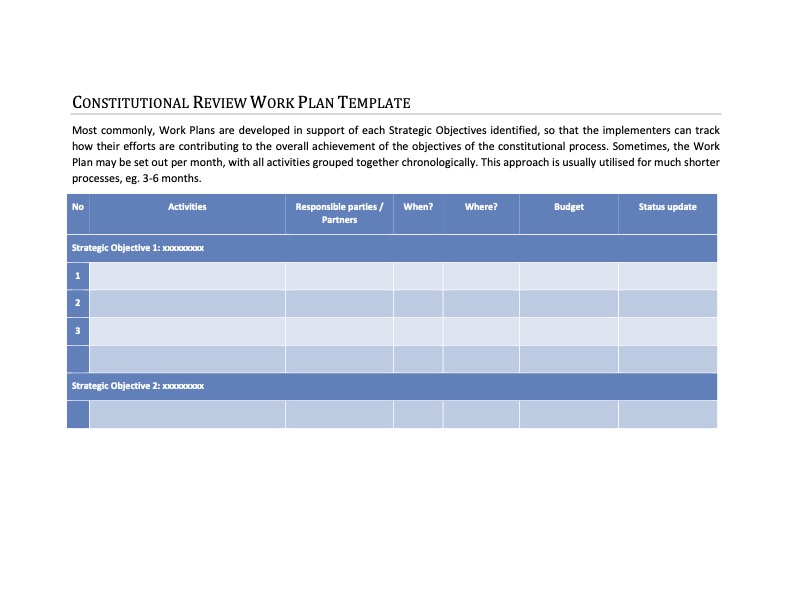
This document is an empty template for a constitutional review work plan.
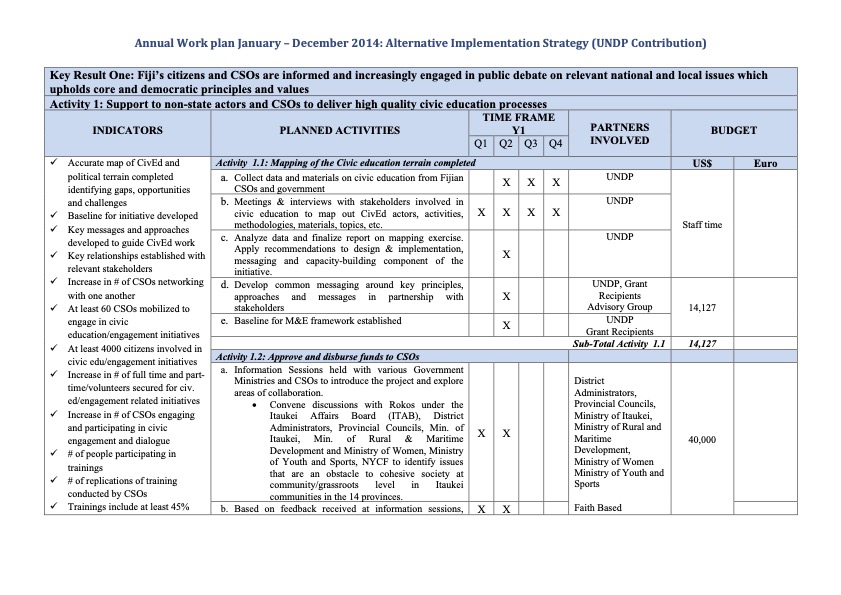
This document is the workplan for Fiji''s citizen engagement dialogue for the year 2014. It covers support to non-state actors and CSOs to deliver high quality civic education processes and dialgue process and relationship building.&nbsp.
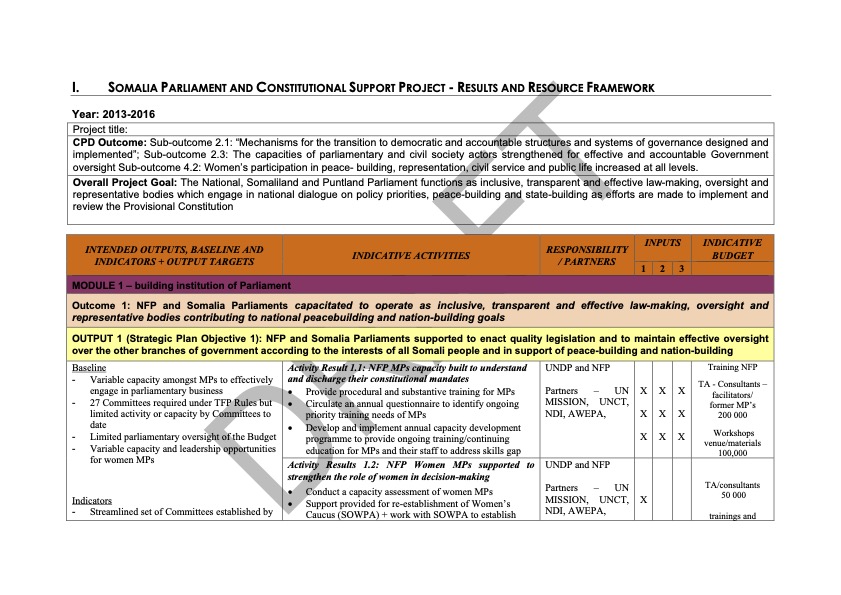
This document is the workplan for the Somalia Parliament and Constitutional Support Project (2013-2016). It also contains the breadkdown of the budget per module, output and summary of inputs.
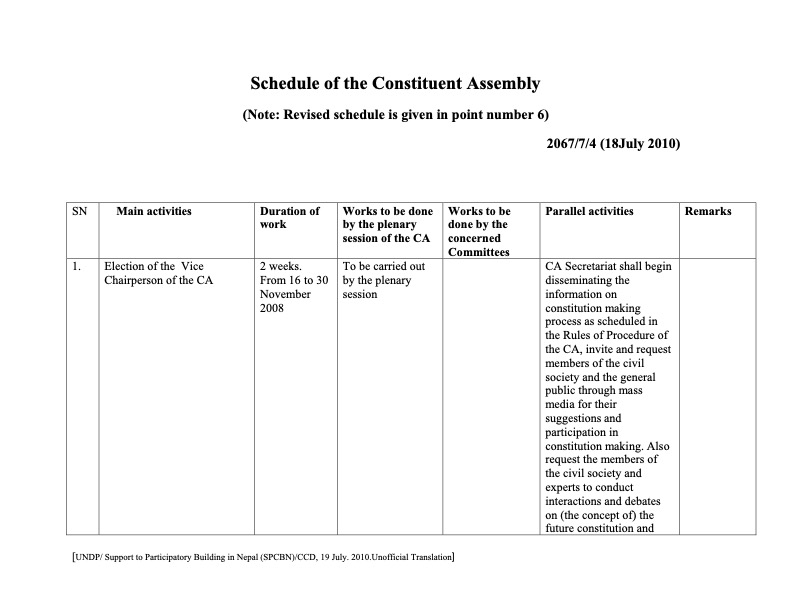
This is the eleventh amendment to the schedule of Nepal's Constituent Assembly, issued July 18, 2010.
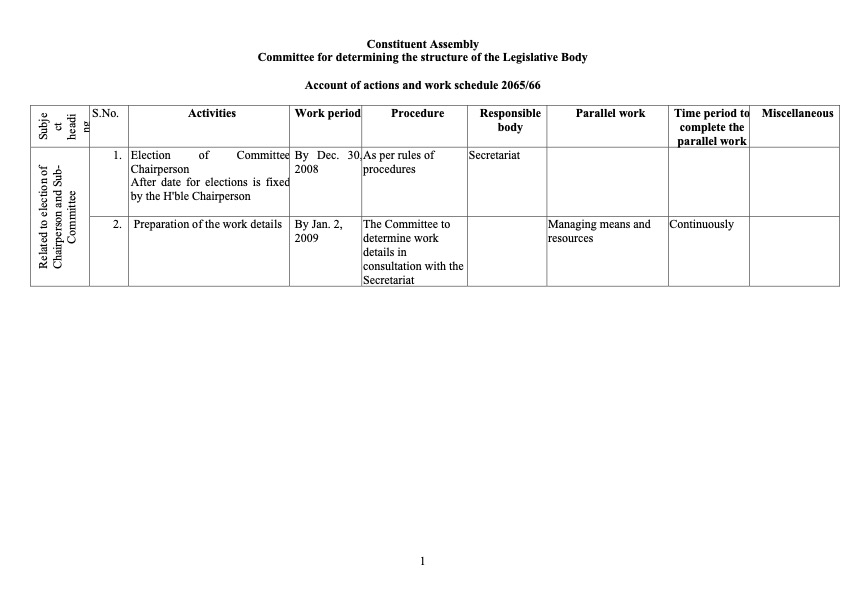
This sample document displays the schedule of the Committee for Determining the Structure of the Legislative Body in Nepal. The timeline of this schedule was determined as from December 29, 2008 to April 22, 2009.
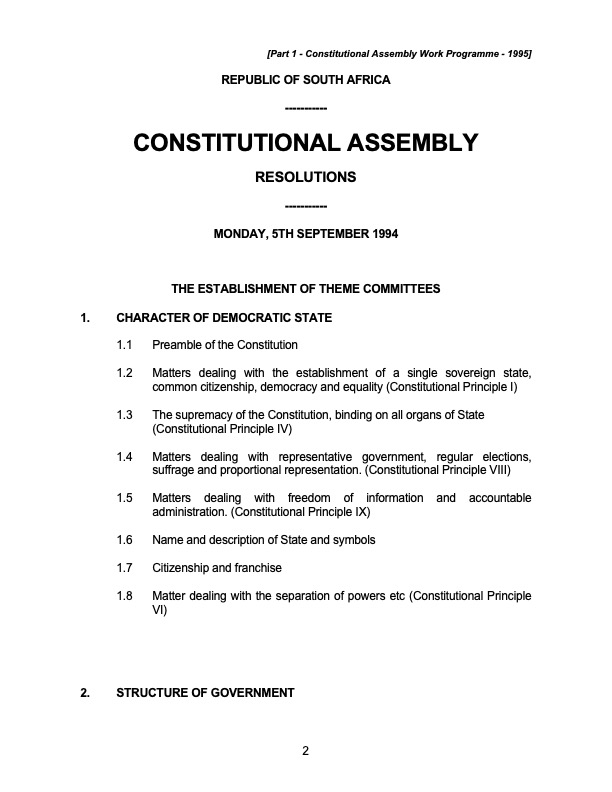
This is a collection of 1994-1995 resolutions of the South African Constitutional Assembly, which outline the Assembly''s structure, work programme, projection of time frames, public participation program and administration.
Keywords: &nbspConstitutional Assembly, Work Plan, Setting the Agenda, Timeline/ Timetable (Sample), Organization of Constitution-Making Bodies, Committees, Example.
Further Reading
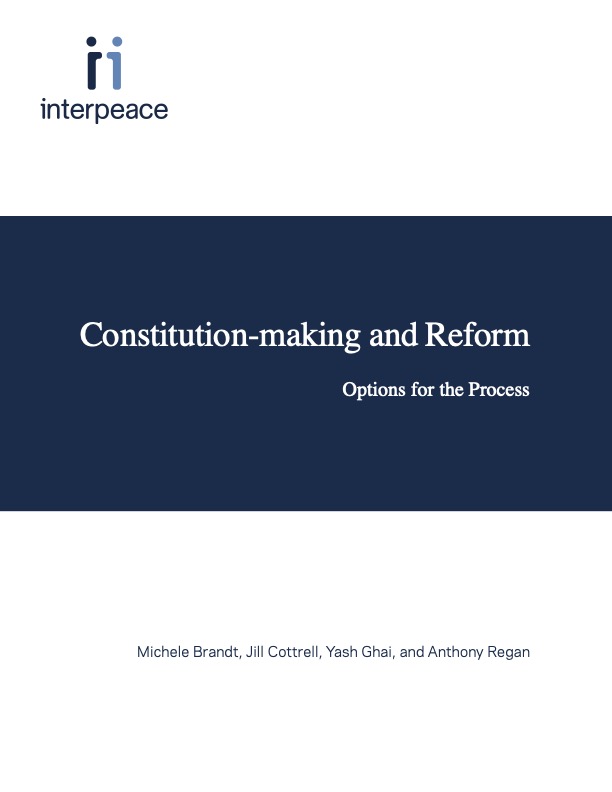
This is a comprehensive guide to constitution-making and reform. The book identifies the tasks that need to be carried out, the procedures that can be used, and who can do them. It is intended for a wide audience and to be a guide for anyone who is engaged in a constitution-making process, or who is interested in improving constitution-making practice. It includes a discussion on the following topics: Emerging guiding principles, Impacts of Adherence to Guiding Principles, The Role of a Constitution Issues of Process Key Components and Issues of the Constitution-Making Process Tasks and Responsibilities in Constitution-Making Assessing the Impact of Constitution-Making Who Does What in the Process Starting the Process Public Participation Administering and Managing the Process and its Resources The Agenda of Constitutional Issues and Generating Ideas on the Issues Debating and Deciding the Issues The Constitutional Text: Coherence and Drafting Adopting and Implementing the Constitution Institutions with Multiple Roles Institutions that Develop Proposals about which Final Decisions are Made Elsewhere Administrative Management Bodies Specialist or Technical Input Institutions Referendums and Plebiscites Civil society and the media and Guidance for the International Community.
